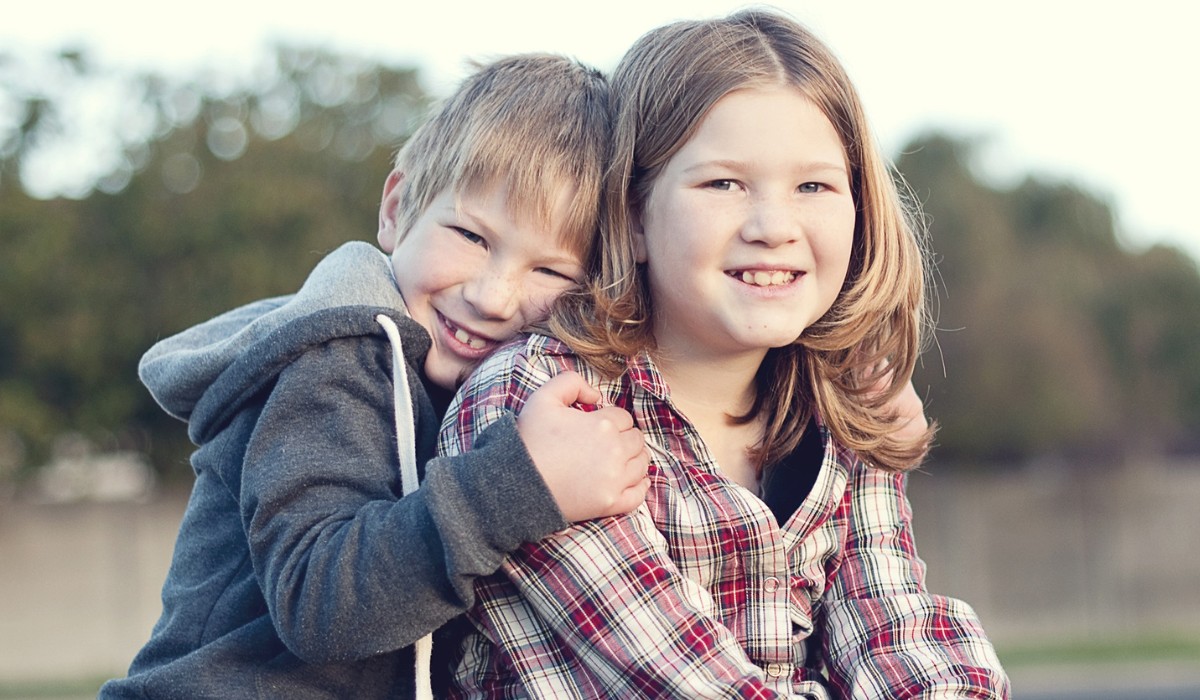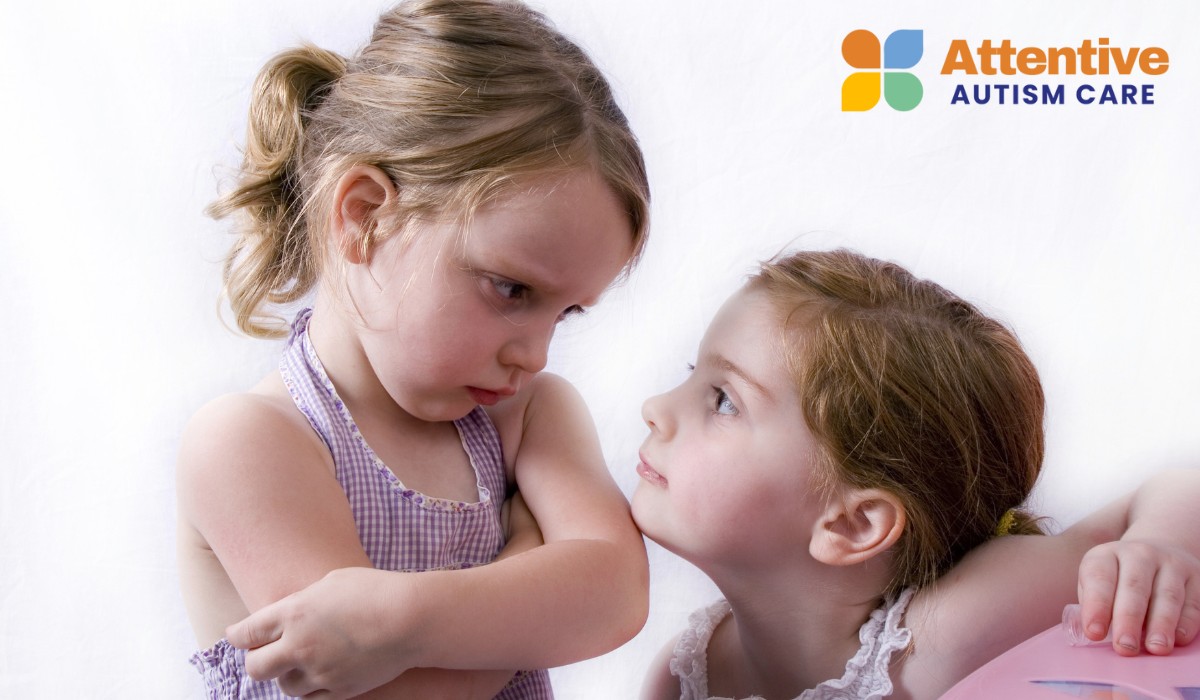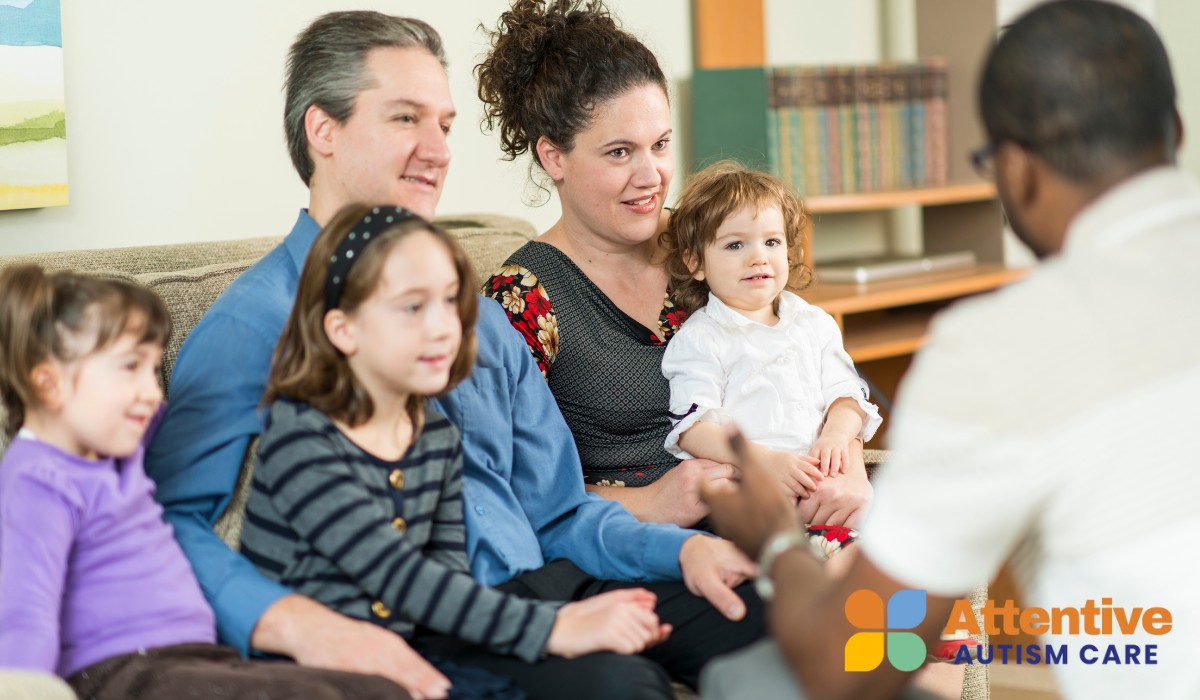What Life is Like for Siblings of Autistic Individuals
Learn about the experiences and perspectives of siblings of children with autism spectrum disorder (ASD), and how it affects family dynamics and personal development.

Key Points:
- Siblings of autistic individuals often face emotional and social dynamics that differ from typical sibling relationships.
- Supportive parenting and inclusive communication foster stronger bonds among neurodiverse siblings.
- Providing individualized attention and age-appropriate education helps siblings cope and connect.
Sibling relationships shape a child’s social and emotional development. For siblings of autistic individuals, these relationships may include unique joys and challenges.
Research suggests that siblings of children with autism spectrum disorder (ASD) may experience increased responsibilities, emotional sensitivity, and sometimes confusion or resentment if not properly supported.
With autism becoming more recognized and diagnosed, more families are navigating how to balance the needs of all their children. This article focuses on helping parents understand the needs of both autistic children and their siblings, while offering practical strategies to strengthen family dynamics.
What are the Needs of Siblings of Autistic Individuals?
Siblings of autistic individuals often face unique emotional challenges, including feelings of confusion, frustration, and sometimes guilt. They need understanding, reassurance, and opportunities to express their feelings openly. Providing age-appropriate information about autism helps siblings develop empathy and patience, fostering stronger family relationships.
It’s also vital to ensure siblings have time and space for their own interests and social activities to prevent feelings of neglect. Support groups or counseling can provide a safe environment to share experiences and build coping skills, helping siblings feel valued and supported within the family dynamic.
How Does Autism Affect Sibling Relationships?
Autism can influence sibling relationships in many ways, especially when one child has behaviors that are difficult to understand or manage. Siblings may feel protective, frustrated, or even neglected if they perceive unequal parental attention.
In some cases, siblings develop higher levels of empathy, maturity, and resilience. In others, misunderstandings or unmet emotional needs may lead to long-term relational strain.
Key impacts include:
- Shifts in family roles (e.g., taking on caregiving responsibilities).
- Reduced shared play or interaction due to sensory or communication barriers.
- Feelings of embarrassment in social situations involving the autistic sibling.
Understanding these dynamics can help parents intervene early and promote healthier interactions.
What are Healthy Ways to Foster Positive Sibling Bonds?
Creating supportive environments where all children feel heard and valued can help build strong sibling relationships. Open dialogue, fairness, and setting clear expectations are key foundations.
Before outlining specific ideas, it’s important to understand that the goal isn’t to eliminate differences, but to help siblings connect despite them.
Here are some helpful strategies:
1. Encourage Shared Activities
Engaging siblings in joint activities like games or hobbies promotes cooperation, understanding, and fun. Shared experiences build connection, reduce rivalry, and create lasting memories, helping siblings appreciate each other’s unique strengths and interests.
2. Model Empathy and Acceptance
Parents can demonstrate empathy by validating feelings and encouraging siblings to accept differences. Showing respect and understanding teaches children how to respond kindly, fostering compassion and reducing judgment within sibling relationships.
3. Maintain Individual Attention
Ensuring each child receives personalized time and attention prevents feelings of neglect or favoritism. Supporting individual needs helps siblings feel valued, boosting self-esteem and minimizing resentment or competition.
4. Create Family Rituals
Regular family routines or traditions provide stability and togetherness. Rituals strengthen bonds by giving siblings shared moments of joy and security, reinforcing a positive family identity despite challenges.
How Can Parents Support Emotional Health in Siblings?
Parents can support siblings’ emotional health by fostering open communication where feelings are acknowledged without judgment. Encouraging siblings to express their thoughts and concerns helps reduce stress and builds trust. It’s important to validate their emotions and provide reassurance that their feelings matter.
Additionally, parents should ensure siblings have opportunities for self-care and personal growth, including time for hobbies and friendships. Offering access to support groups or counseling can provide valuable coping tools. Prioritizing siblings’ well-being strengthens family bonds and helps create a balanced, supportive home environment for all children.

What are Common Challenges Faced by Siblings?
Despite their love for their autistic sibling, children may encounter challenges that are confusing or stressful. Recognizing these early on can help families address them before they escalate. Below are examples of common challenges:
1. Jealousy or Resentment
Siblings may feel jealous or resentful if they perceive more attention given to their autistic brother or sister. Recognizing these feelings helps parents provide reassurance and balance, fostering healthier sibling relationships.
2. Public Embarrassment
Children often feel embarrassed by their siblings’ meltdowns or unusual behaviors in public. Addressing this sensitively and educating siblings about autism reduces stigma and promotes understanding and acceptance.
3. Guilt and Frustration
Siblings can experience guilt when frustrated or wishing for different family dynamics. Open conversations about these feelings validate their emotions and reduce shame, encouraging emotional honesty and support.
4. Role Confusion
Being expected to take on caregiving roles too early can confuse siblings about their place in the family. Clear boundaries and age-appropriate responsibilities help maintain healthy sibling dynamics.
By acknowledging these feelings without judgment, parents can build a healthier family culture rooted in transparency and empathy.
How Can Siblings Be Included in the Autism Care Process?
When done appropriately, involving siblings in the care and development of an autistic child can foster responsibility and pride. However, this involvement should always match the sibling's age and readiness.
Rather than assigning duties, consider framing participation as a choice and a learning opportunity. Focus on building understanding, not pressure.
Ideas for healthy involvement:
1. Involve in Communication Tools
Let siblings help create visuals or social stories to promote understanding and connection.
2. Include in Therapy Sessions
Invite siblings to attend ABA therapy sessions, fostering learning and empathy with consent.
3. Teach Sensory and Calming Strategies
Educate siblings about sensory tools and calming techniques to support their autistic brother or sister.
4. Celebrate Family Milestones
Celebrate achievements together, reinforcing teamwork, pride, and shared family success.

When Should Parents Seek Additional Help?
Parents should consider seeking additional help if their child’s challenges significantly impact daily functioning, such as difficulty communicating, severe behavioral issues, or struggles with social interactions.
Early intervention improves outcomes, so don’t wait if concerns arise. If progress stalls despite current support, professional guidance can provide new strategies.
Additionally, if parents feel overwhelmed or uncertain about managing behaviors or developmental needs, consulting specialists like pediatricians, therapists, or counselors is valuable.
Timely support ensures children receive appropriate services and families get resources to navigate challenges effectively and confidently.
Nurture Your Child’s Strengths With ABA Therapy
Navigating the complexities of sibling dynamics requires intentional care, especially in households where autism plays a central role. Applied Behavior Analysis (ABA) therapy is not just for the individual with ASD—it can support the entire family system.
At Attentive Autism Care, our team uses ABA principles to help build social, emotional, and behavioral skills that benefit every member of the household. Whether you live in Colorado, Utah, North Carolina, Maryland, New Mexico, or Nebraska, we’re here to help you create more harmony at home.
Get in touch with us to learn how our ABA therapy in North Carolina, Colorado, Utah, Maryland, New Mexico, or Nebraska can support your child and their siblings in growing stronger together.




































































































